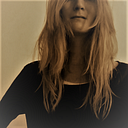Liberal Arts Advanced-what? FAQs about Minneapolis College of Art and Design’s Liberal Arts Advanced Seminar (course content)
FAQ #1: LIBERAL ARTS ADVANCED-WHAT?
From the MCAD course guide:
The Liberal Arts Advanced Seminar enables students to pursue their own research and writing goals within a seminar setting. Projects are student-originated and consist of both a written piece and a public presentation. Class sessions are discussion-based and interactive. Group learning is emphasized. Prerequisite: Junior standing
Now let’s pick that apart:
“enables students to pursue their own research”; “projects are student originated” = You pick a topic, you narrow that topic, you turn this into a question, you dig in (to texts as well as to the real world around you), you arrive at new insights, conclusions, etc. We’ll be doing this together so nobody gets lonely.
“a written piece” = 2500 words, 20 citations within your text. This might sound scary; it won’t be by the time we get there.
“a public presentation” = 10 minutes in front of your peers, summarizing your research, research findings, and their broader implications (i.e. answering the “so what?” question). This, too, will become less scary with time.
“discussion based and interactive”; “group learning” = like all good education models in 2019.
FAQ #2: DO THE VARIOUS SECTIONS OF LAAS DIFFER?
Yes. Different instructors use different readings and different audio-visual content, and because these vary, then so too do in-class discussions and activities. That said, your “deliverables” are reeeeally similar.
Over 13 weeks, all LAAS students will progress from brainstorming potential research topics to completing a research paper. In the final weeks, all LAAS students will present their research. In my own understandings, nobody has it harder or easier because of their/her/his section.
Furthermore, we, the LAAS sections, share a singular “stripe.” In the words of LibArts director Gerald Ronning:
“Seeing is the central stripe, now, coupled with an open-ended idea about the relationship between seeing and epistemological systems” (personal correspondence 2018).
A couple of notes on that:
A. Seeing, in academia, can mean almost whatever you want it to mean, given that it is both our (human beings’) most-privileged sense AND one of our favorite metaphors. Below, I will tell you what it will mean for us, here, this semester, to “see.”
B. On epistemological systems: that’s a lot of syllables. In the words of Fathi Hasan Malkawi:
“An epistemological system concerns itself with issues of relevance to the history and evolution of knowledge, the sources and tools of this knowledge, methods of classifying knowledge, and a clarification of its functions” (2016).
In sum, epistemological systems are about contextualizing what we *know*:
How and why do we know what we know? How has this changed through time?
Also:
What does knowledge *do* (for whom, at what time)? And what does it mean to decolonize knowledge?
FAQ #3: SO WHAT ABOUT US IN PARTICULAR?
Given that 1) seeing and 2) the contextualization of knowledge are our foci, one of our predominant course questions will be:
“How do ARTISTS use research, and use knowledge, so that their audiences may see?”
Another will be:
“How do SCIENTISTS use research, and use knowledge, so that their audiences may see?”
And we are using weekly case studies as our tool (i.e. research method) for interrogating these questions.
Lastly, and just as importantly, in this course we will “see” by doing.
You will get to try-out several different research methods (some tried and true, some brand new) during your own investigation phases, and what I really do believe is that by the end of this semester you will be equally adept at pulling data from
a) books, articles, and blogs;
b) other human beings; and
c) much of the rest of the empirical (able to be sensed) world in which we live.
Do not hesitate to ask me questions if you have doubts about any of this. Yes, you got here because this course is required. It is my job to figure out how to make it worth your while.
